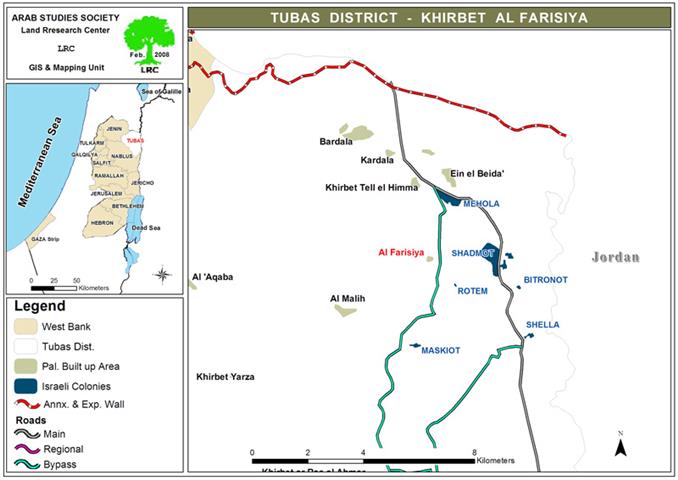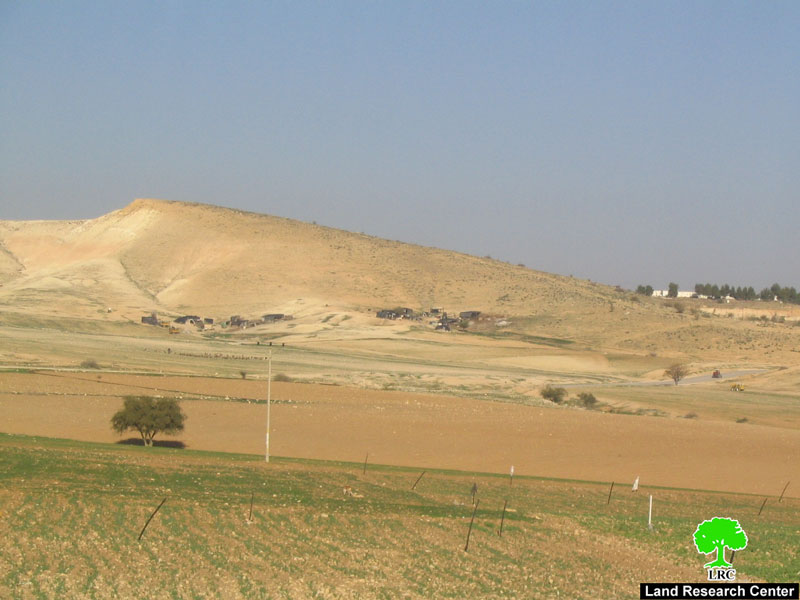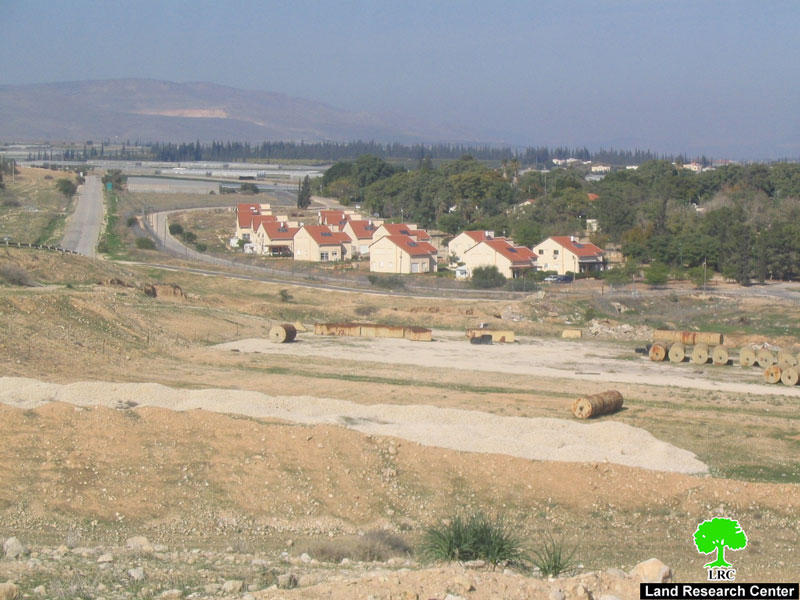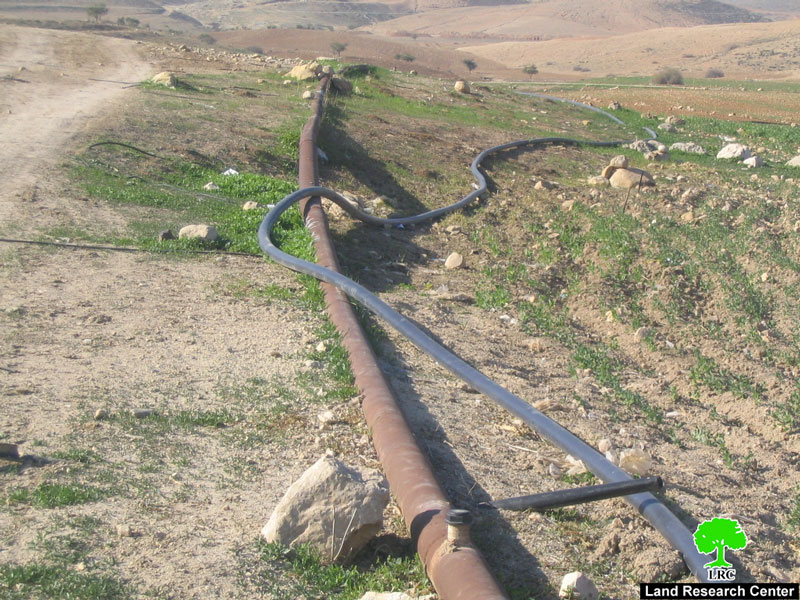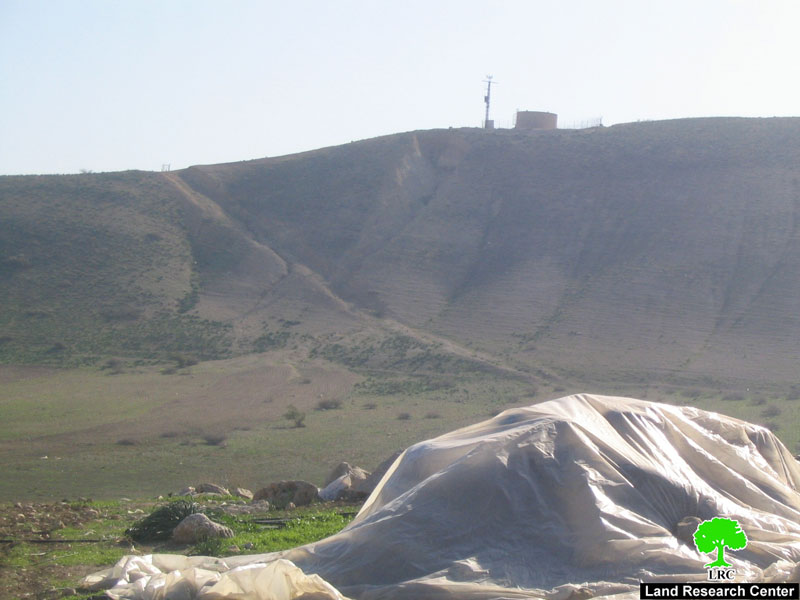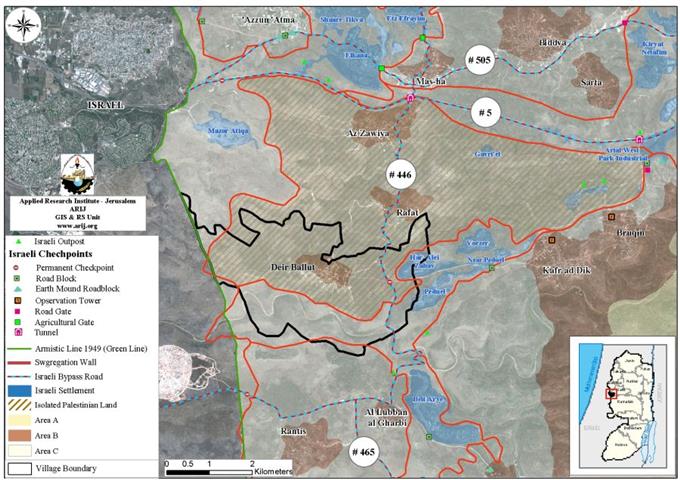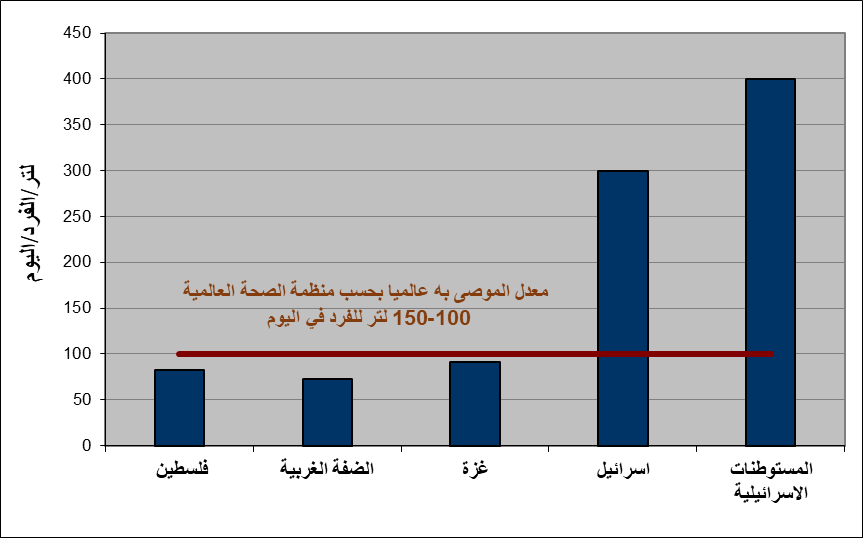Historical Background:
Khirbat Al Farisiya is located 20 kilometers east of the City of Tubas in a location known as Wadi Al Maleh. Its lands stretch from Tayasir checkpoint in the west to the Jordan River in the east. Its current population stands at 241 whereas it was more than a thousand before the beginning of the Israeli occupation in 1967. The population (current and past) depended on farming and herding as the main source of income. Finally, there are three main families in the Khirbet; Bisharat, Daraghma and Babat who are all originally from the city of Tubas and the town of Tammoun. See Map 1
Map 1: location of Khirbat Al Farisiya
The Khirbet used to be famous for its springs and the fertility of its soil which made it a spot where all farmers in the area gather for herding purposes. See Photo 1
Photo 1: an overview of Khirbat Al Farisiya
The Khirbet and its Suffering with Israeli Occupation:
Since the inception of the Israeli occupation of the West Bank it has strived to annex the Jordan Valley as it constituted, according to Israeli claims, the Eastern Defense Line against any possible attack from the direction of Jordan. Israeli authorities have also to know the water potential of the Valley to cover the needs of the occupation.
In order to strengthen its hold on the Valley, Israeli occupation authorities have confiscated most of the agricultural lands in the region of Wadi Al Maleh and transferred it to Military Closed Zones and military encampments to which access is denied to Palestinians. For example, Israeli occupation authorities have transformed the eastern part of Wadi Al Maleh (located parallel to the Jordan River) into a mine field in addition to transforming the higher ridges to military bases and army firing and training zones which has negatively affected the farmers in the area. The reduction of the area to which Palestinians are allowed to use to less than 1% of the lands of Wadi Al Maleh in addition to not allowing herders to herd in the mountainous regions (under the pretext that they were 'Closed Military Zones' has led to massive losses in the economical life of the residents of the Khirbet. All these factors combined have led the residents to depart from the area leaving a mere 5 families (originally 75) living there.
In addition, the abusive behavior of the Israeli occupation authorities in the region has negatively affected the psyche of the Palestinian residents there and reduced their number. The latest such act was the death of the 13-year old child Ahmad Hamad when a mine blew up in him as he stepped on it during herding in 2006. In addition, a 16-year old boy called Rafe' Hamdan was injured with a live bullet in his back in the same year as Israeli soldiers were carrying out military maneuvers in the vicinity of his house. He was totally paralyzed.
Colonial Activity in Wadi Al Maleh:
In an attempt to foreclose the Jordan Valley, strengthen its grip on it and prevent any Palestinian demographic expansion there, Israeli authorities 'swamped' the Valley with colonies while giving colonists incentives to encourage them to expand their presence there. The colonies have reached 29 in which 8586 colonists reside by the end of 2005. The confiscated lands in the Valley reached about 74,955 dunums. To be more specific, the Wadi Al Maleh has 5 colonies in it according to the following table:
|
No. |
Colony Name |
Date of Establishment |
No. of Colonist (as of the end of 2005) |
Total Area in Dunums |
Municipal Area in Dunums |
|
1 |
Sal'it |
1977 |
429 |
1377 |
256 |
|
2 |
Mikhora |
1973 |
114 |
550 |
132 |
|
3 |
Rotem |
1984 |
24 |
123 |
16 |
|
4 |
Miskiyot |
1987 |
500 |
N/A |
N/A |
|
5 |
Mehola |
1968 |
362 |
615 |
190 |
|
|
|
|
1429 |
2665 |
594 |
These colonies are expanding on daily basis at the expense of Palestinian land owners in the region. Israeli colonists are, also, carrying out a daily harassment campaign to the degree that their acts have become a true challenge for Palestinian residents there. For example, Israeli colonists uprooted a large number of trees planted by Palestinians on December 29th, 2007. These colonists are often called 'Colony Youth' who would usually wander between Palestinian farms and herding fields in the region with the aim of physically attacking the unarmed Palestinians and damaging their property. See Photo 2
Photo 2: Mehola Colony in the Jordan Valley
The Destruction of Water Springs in Wadi Al Maleh:
Since the occupation in 1967, Israeli authorities have consistently continued to deprive the Palestinians from their water share in the Jordan River (estimated at 250 million cubic meters yearly) to be used to construct and expand colonies and Israeli agriculture in the Valley. These authorities have given exclusive rights for the Israeli Water Company (Makharot) for digging and water extraction in the Valley. The company carried out diggings on medium and large depths in a number of locations in the Valley which contributed to the drying up of Palestinian wells and the increase of its salt content. In Wadi Al Maleh, occupation authorities destroyed water springs and its water content was diverted to large water containers it established on the ridges of nearby mountains. This act has led to depriving the Palestinian agricultural sector of water which made Palestinian farmers dependent of purchasing water from the nearby Bardala village and then pump it through pipes to Wadi Al Maleh. However, despite the high cost of transportation, the quantities of pumped water are considered not enough to sustain the agricultural sector in the Wadi.
Photo 3: Empty water pipes in the lands of Khirbat Al Farisiya
Photo 4: an Israeli water tank plunders water of Khirbat Al Farisiya
It is worth noting that during the past period pumping of water from Bardala to Wadi Al Maleh was suspended which might lead to an agricultural disaster in case an alternative source was not found especially that Israeli occupation authorities refused supplying the area with water.
In this framework, Mr. Jameel Yousef Dababat, 57 years old, a resident of Khirbet Al Farisiya indicated that our presence in this region is continuously threatened. We don't feel safe any more. My family and I are at the brink of being thrown out in any given moment by the colonists and Israeli soldiers. See Photo 5
Photo 5: One of Khirbat Al Farisiya Houses
Prepared by
The Land Research Center
LRC


